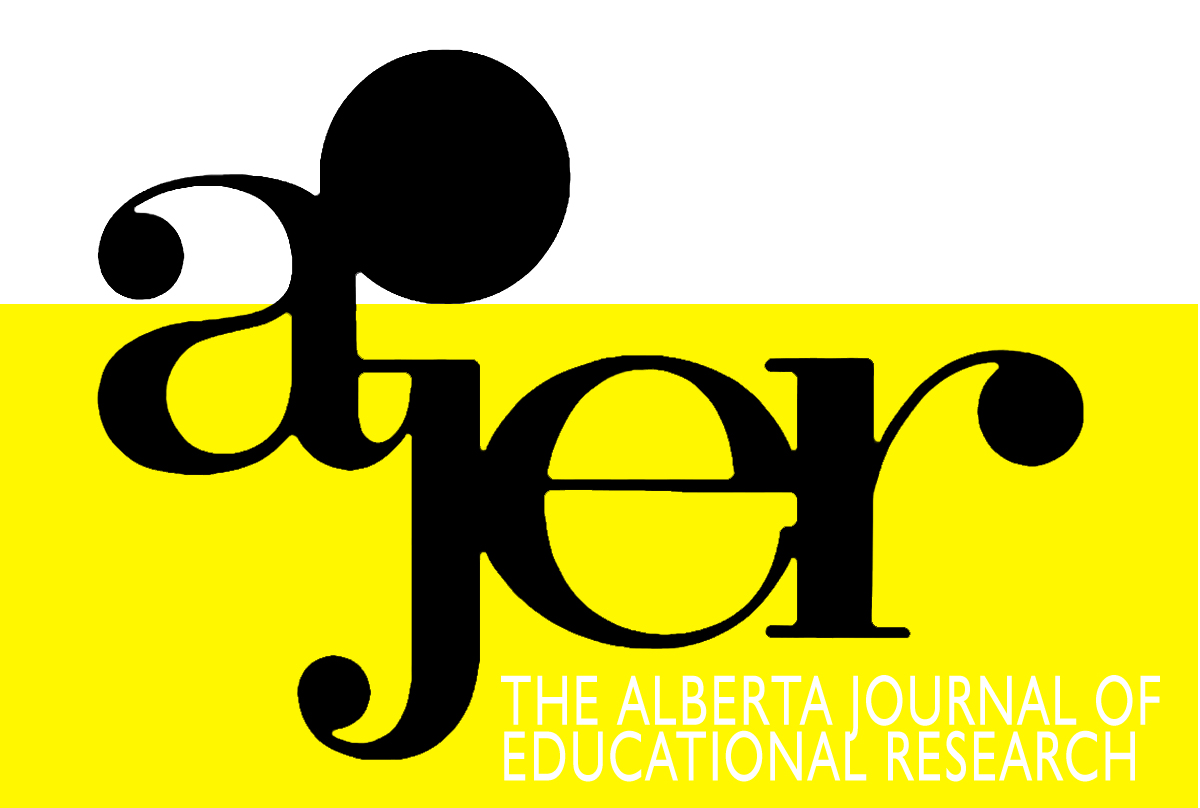Health and Weight Beliefs and Behaviours of Pre-Service Teachers: Considerations and Implications for a Health Promotion Perspective in Teacher Education
DOI:
https://doi.org/10.55016/ojs/ajer.v63i3.56301Keywords:
Keywords, Pre-service teachers, health behaviours, weight beliefs, teacher education, health promotion, Mots-clés, stagiaires, comportements liés à la santé, croyances relatives au poids, formation des enseignants, promotion de la santéAbstract
This project explored primary and secondary pre-service teachers’ (i.e., bachelor of education [B.Ed.] students) beliefs about health behaviours as well as health and weight during their university education at a large research-intensive university in Alberta. Although many studies claim that there is a need for teacher education in the areas of health and weight, recommendations for what such curricula might include are lacking. The present study was conducted with 226 pre-service teachers. Data included participants’ self-reported height, weight, body satisfaction, health promoting behaviours, implicit weight bias, and current weight loss and muscle gain attempts. Results suggest many pre-service teachers have concerns about their weight and shape, and exhibit weight bias. Teacher education focusing on body satisfaction, weight bias, exercise behaviour, and stress management may be beneficial for pre-service teachers to better prepare them to instruct about as well as model health attitudes and behaviors to their future students.
Ce projet a exploré les croyances de stagiaires au primaire et au secondaire (c.-à-d. des étudiants au Baccalauréat en Éducation) sur les comportements liés à la santé, la santé et le poids pendant leur parcours dans une grande université albertaine centrée sur la recherche. Si plusieurs études affirment que les enseignants doivent être formés dans le domaine de la santé et du poids, les recommandations quant à ce que pourrait inclure une telle formation sont inexistantes. L’étude, réalisée auprès de 226 stagiaires, a demandé aux participants de fournir des données relatives aux éléments suivants : taille, poids, satisfaction à l’égard de leur corps, comportements favorables à la santé, partialité implicite envers les gens présentant un excès de poids, perte de poids actuelle et tentatives d’augmenter la masse musculaire. Les résultats indiquent que plusieurs stagiaires sont préoccupés par leur poids et la forme de leur corps, et qu’ils montrent un préjugé face aux personnes avec de l’embonpoint. Une formation qui porterait sur la satisfaction à l’égard de son corps, la partialité envers les gens présentant un excès de poids, les comportements liés à l’exercice physique et la gestion du stress pourrait s’avérer bénéfique pour les stagiaires, qui seraient ainsi mieux préparer pour enseigner à leurs élèves des attitudes et des comportements liés à la santé, et pour en être de bons modèles.
Published
Issue
Section
License
UNIVERSITY OF ALBERTA COPYRIGHT LICENSE AND PUBLICATION AGREEMENT
If accepted, authors will be asked to sign a copyright agreement with the following points:
A. Where there is any inconsistency between this Copyright License and Publication Agreement and any other document or agreement in relation to the same subject matter, the terms of this Agreement shall govern.
B. This document sets out the rights you are granting in relation to publication of your article, book review, or research note entitled (the “Article”) through inclusion in the academic journal titled Alberta Journal of Educational Research (the “Journal”) published through the Faculty of Education, representing the Governors of the University of Alberta (the “Journal Editor”).
C. There will be no payment to you for this publication and grant of rights. In consideration of the agreement to publish the Article in the Journal:
1. You are warranting that:
- the content of the Article is your original work, and its content does not contain any material infringing the copyright of others; or, where the Article is not entirely your original work, you have obtained all necessary permissions in writing to grant the rights you are giving in this agreement;
- the content of the Article does not contain any material that is defamatory of, or violates the privacy rights of, or discloses the confidential information of, any other person;
- the Article has not been published elsewhere in whole or in part, and you will not allow publication of the Article elsewhere without the consent of the Journal Editor;
- the names of all co-authors and contributors to the Article are:
2. You agree to license the copyright in the Article to the Journal Editor, on a worldwide, perpetual, royalty free basis; and to the extent required by the terms of this agreement. You shall retain the right at all times to be acknowledged as the/an author of the Article.
3. You further agree that the Journal Editor has the entitlement to deal with the Article as the Journal Editor sees fit, and including in the following manner;
- The right to print, publish, market, communicate and distribute the Article and the Journal, in this and any subsequent editions, in all media (including electronic media), in all languages, and in all territories, ing the full term of copyright, and including any form of the Article separated from the Journal, such as in a database, abstract, offprint, translation or otherwise, and to authorize third parties to do so;
- The right to register copyright of the Journal;
- The right to edit the Article, to conform to editorial policy as the Journal Editor sees fit.
4. If any co-author or contributor to the Article does not sign this agreement, the Journal Editor reserves the right to refuse to publish the Article.



